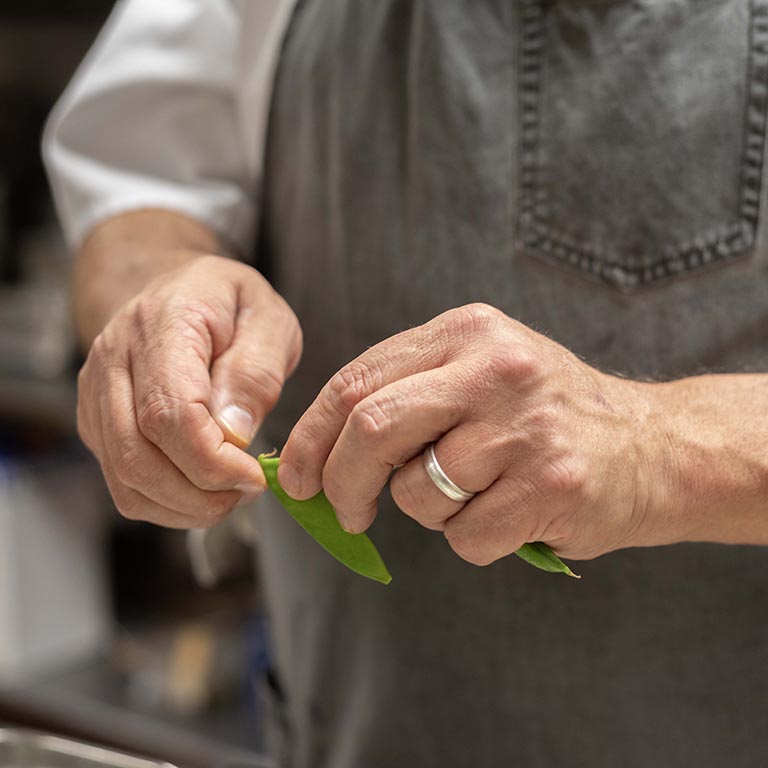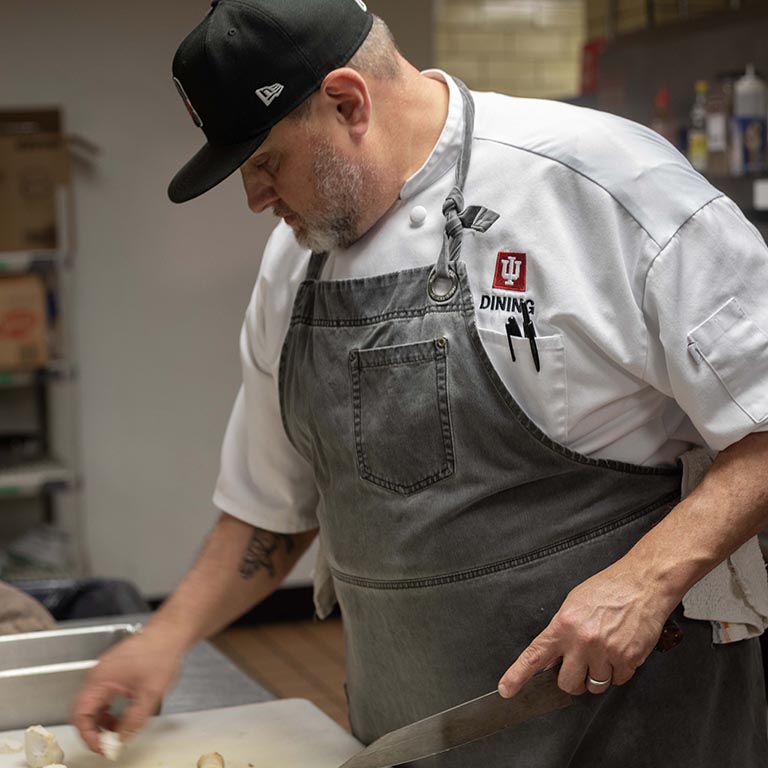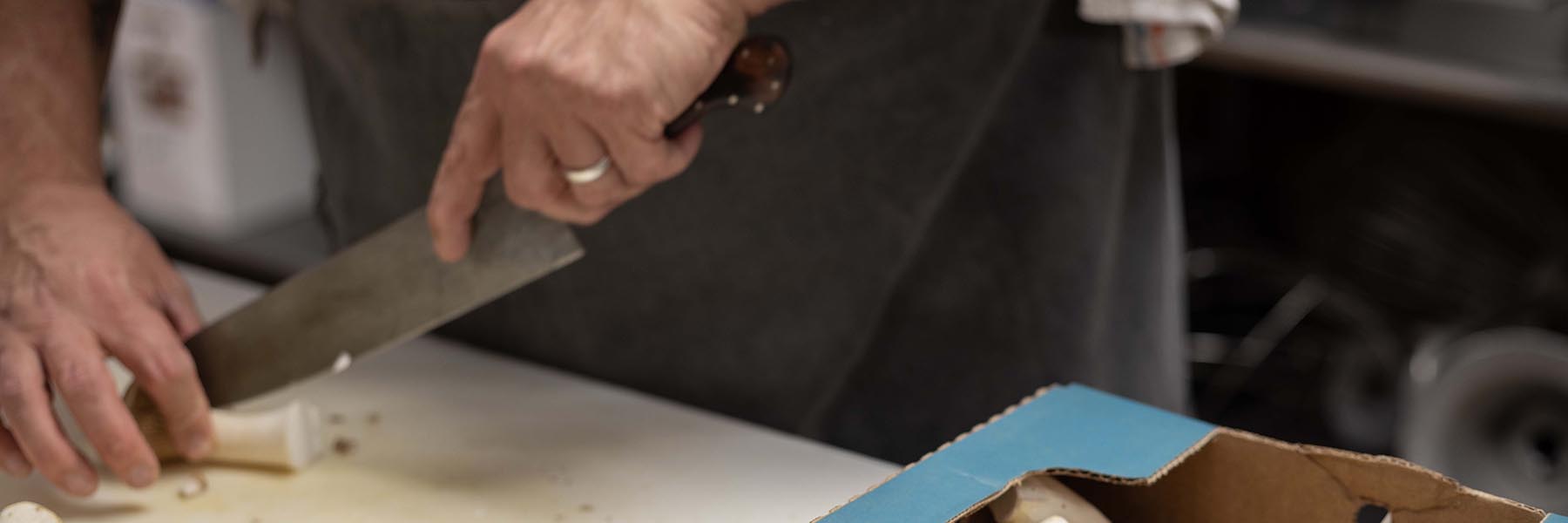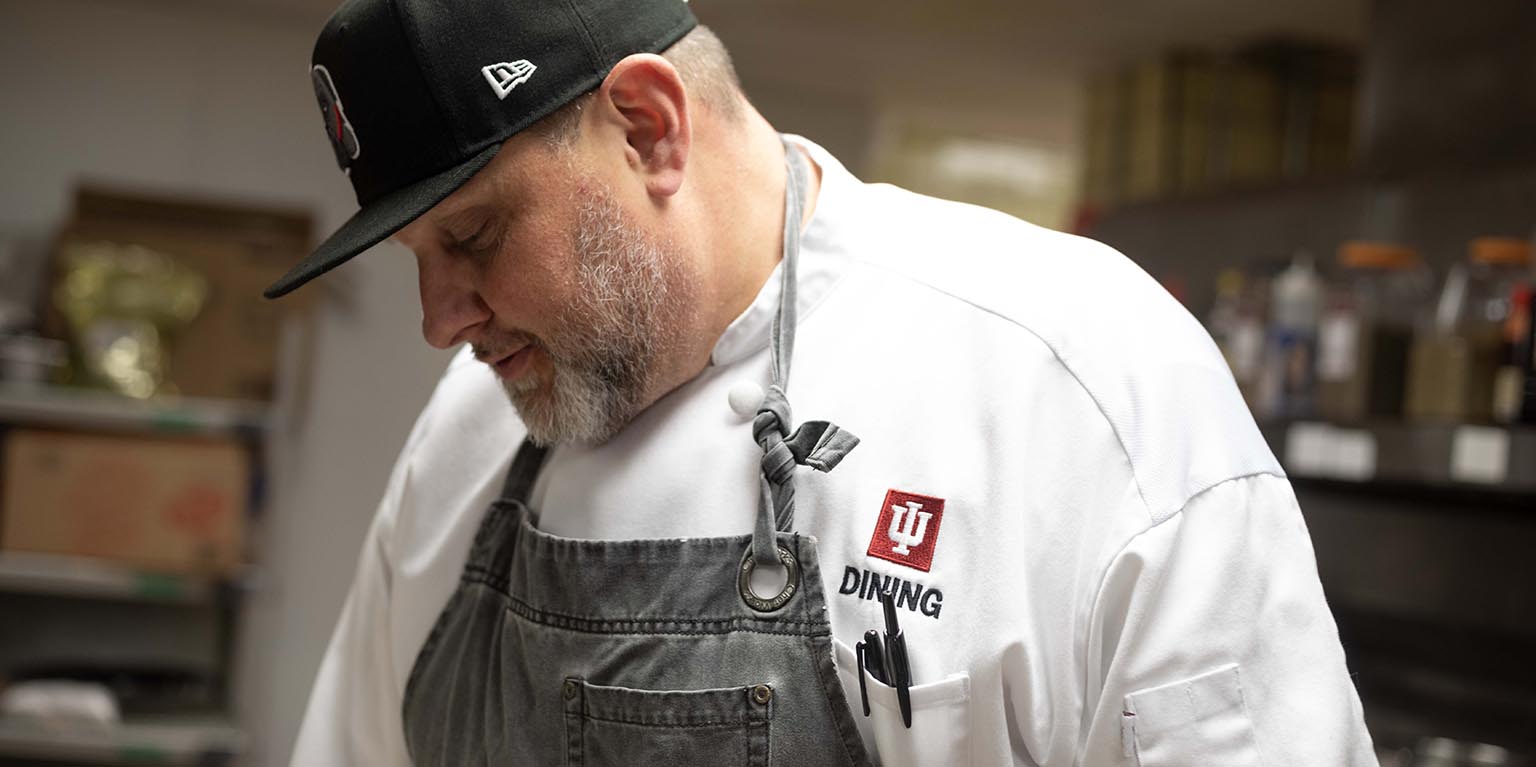Who or what inspired your interest in cooking, and what led you to pursue it as a career?
Around age 21, I worked at a location where I was pulled into the kitchen when they were short-staffed. It was loud and chaotic. The energy was intoxicating. Recipes to me are an art. Baking you're like half scientist. Cooking I'm like half pirate.
What led you to train at the Culinary Institute of America?
I was working at Bloomington restaurants until I started a position at a local country club. This is where I saw a new environment for food and met a chef who had gone to the CIA. I then pursued the program in New York. There wasn’t much fine dining in Bloomington at the time, so there was a void for that. Restaurants also weren’t using the farmers’ markets as much at that time.
 Could you describe what the Slow Food Movement means to you?
Could you describe what the Slow Food Movement means to you?
It’s about relationships. It’s about knowing farmers. It's what’s being cooked locally, [creating] menus based on what’s in season. It’s about cooking tomato dishes when they are ripe. Cooking with what grows naturally where you are. I worked at a restaurant where a farmer would bring in boxes of whatever seasonal fresh produce he had just gathered. He brought in fresh sugar plums that were still warm from being picked from the tree. I had never had a sugar plum. That clicked for me. That’s how it’s supposed to be.
For my restaurant, I went to our local farmers’ market and bought any fresh produce farmers had left over. I offered to buy it all to use on hand at my restaurant. I kept in touch with farmers and knew what they were growing. You know the person and their passion, so you don’t need the paperwork behind the products to show that. Their children would work at my restaurant. We had a lifelong relationship.
How long have you been a chef with IU?
I’ve been here for nine years. I started at IU in July of 2015 as IU Catering’s Executive Chef. I was also running my restaurant for the first six months I was working at IU. In the fall of 2020, I took over as the Executive Chef of IU Dining.
 What does a typical day look like for you?
What does a typical day look like for you?
I visit our various IU Dining operations and work with the four Chef de Cuisines here who have strong backgrounds and spent most of their careers in restaurants. I also help manage vendor relationships. I try to source the best quality products at the best possible price. I have my own handwritten menus I use when cooking for university catering events. I have institutional knowledge of the clients since I oversaw the IU Catering operation from 2015-2020. I’m involved in big picture planning. I carry out menu planning meetings for spring, fall, and summer. It’s important for me to advocate for our CDCs to own their recipes and be creative.
What are your favorite things to cook outside of work?
I cook almost every night. I love preparing seafood, and love teaching myself in cooking Thai food. I play with gluten-free ingredients and have a lot of fun with my outside wood fire oven in the summer. It’s great for roasting and smoking corn.
What is your vision for IU Dining?
I’d love to see this university supporting farmers in Indiana. Almost all the beef we serve on the IU campus is from an Indiana farm, Fischer Farms in Jasper, Indiana. We are their largest buyer. We know Dave Fischer and have brought students to his farm. This relationship is something I’m extremely proud of.
We’re also excited to be strengthening our relationship with IU Campus Farm and plan to increase expectations for our produce vendors to secure local products from farmers. We do have to keep an eye on the bottom line and be fiscally responsible. We prioritize meeting volume and price demands for our students. This leads us to be more strategic with our purchasing. Even though we are a large university, I want us to be progressive with sourcing locally and building relationships with Indiana farmers.
Cutting back on animal proteins and working with more plants is also a direction I’m looking to push. It entails recipe development. I’d love to develop our own authentic allergen-free veggie burger. There’s a lot of cool stuff we could do if we reduce animal proteins and use more vegetables. I love kohlrabi. It is a super cool, way underutilized vegetable. Asparagus in the spring is awesome. Love cabbage...so versatile.




 Could you describe what the Slow Food Movement means to you?
Could you describe what the Slow Food Movement means to you?  What does a typical day look like for you?
What does a typical day look like for you?